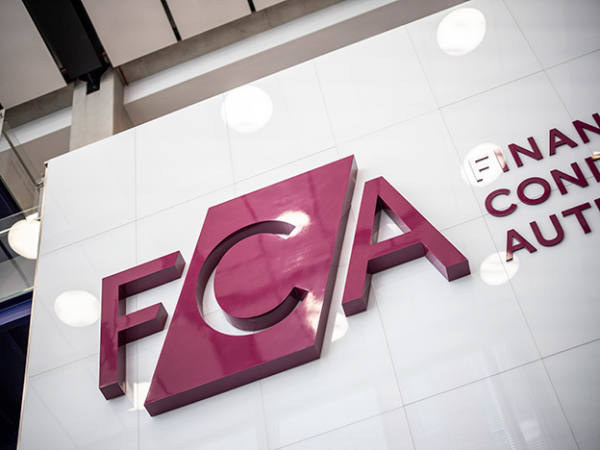The video games industry is entering a recession. Leading companies Nvidia (US:NVDA) and Activision Blizzard (US:ATVI) both saw big drops in gaming revenue in their most recent quarters, while Alphabet (US:GOOGL) has decided to scrap its cloud gaming venture Stadia. Blame is being placed on wider economic conditions impacting consumer budgets as well as tough pandemic comparators.
- Cheap valuation
- Fast growth
- Long-term market expansion
- Strong games portfolio
- Industry recession expected in 2023
- Poor recent title review
During Covid-19, investors expected pandemic habits to become embedded. Indie games developer TinyBuild (TBLD) listed in March 2021 and its share price subsequently rose 40 per cent over the next month. Its forward price/earnings (PE) ratio was soon over 50, as investors bet that the 20 per cent jump in global gaming spend during 2020 would continue. Confidence was high.
With hindsight, it now seems inevitable people would tire of looking at screens after two years of doing almost nothing else. Growth of the gaming market slowed in 2021 before going into reverse in 2022. Over the past year, research company Ampere Analysis downgraded its 2022 forecasts, and now expects the global market to contract 4.4 per cent.
This disappointing market outlook combined with rising interest rates have driven down valuations across the industry. TinyBuild’s share price is down 62 per cent from its 2021 peak and the company now trades on a forward PE of just 13. This valuation drop has occurred despite consistent upgrades in brokers’ forward earnings estimates.
Analysts at Peel Hunt see this de-rating as a buying opportunity, recently noting that the company “has traded well this year with no downward changes to estimates, yet its price implies it has seen some.” We agree.
Strong back catalogue
This optimism is built on recent growth, a strong back catalogue of games and several new releases expected for the coming year. In the six months to June, sales rose 54 per cent to $28.8mn (£23.9mn) while adjusted cash profit (Ebitda) increased 25 per cent to $9.9mn. Encouragingly, 99 per cent of gaming revenue came from back-catalogue games, meaning growth was achieved without any new releases.
Unlike Netflix (US:NFLX), whose users binge shows and immediately expect new content, TinyBuild games often remain popular long after their initial release. TinyBuild will release upgrades to keep the games interesting, but the games also have a social element to them. Online communities develop around titles, helping to maintain the interest of existing fans while attracting new ones.
Chief executive Alex Nichiporchik started his career as an e-sports gamer and journalist. This background helps him understand the importance of social media and YouTube streamers in creating communities around games. In a recent presentation, TinyBuild could point to 1.5mn social media followers, more than 5bn YouTube views and more than 10,000 verified influencers. This might seem trivial, but streaming is becoming an increasingly large part of the industry. In the first quarter of 2022, 8.8bn hours of live streaming was consumed across all platforms, more than double the 2019 global figure, according to Ampere.
TinyBuild's back catalogue is performing well, but investors can look forward to a strong pipeline of games too. The second half of 2022 has already brought six new game releases and a further 30 are in the pipeline. These new releases mean Peel Hunt expects revenue to increase 32 per cent to $76.6mn next year, and for adjusted earnings to hit 8.9c a share.
Releasing lots of titles helps to increase the chance of viral success, but each comes with development risk. Games have large development costs so if they flop, significant impairments can follow. But while it is impossible to gauge how successful a game will be, TinyBuild does have a good track record. Analysis by Peel Hunt shows that around 80 per cent of the group’s games have maximum scores on Google’s Play Store. The figure is also trending positively, with the proportion of five-star games up from 60 per cent in 2016.
Lots of popular IP
Over the past five years, TinyBuild has increasingly focused on producing its own games rather than developing games for others. Self-owned intellectual property (IP) games now comprise 83 per cent of group revenue, up from 78 per cent in 2021. The benefit of own IP is that without having to pay licence fees, margins should improve.
In the first half, the group’s cash profit margin dropped 9 percentage points to 34 per cent due to the dilutive effect of purchasing quality assurance business Red Cerebus and third-party publisher Versus Evil. However, as more of TinyBuild’s own-IP games are released in 2023, Peel Hunt expects margins to head back toward 40 per cent.
As well as being high-margin, popular IP can also be turned into other forms of media and potentially licensed to other companies. Recently, Amazon announced a deal to license television rights to the Warhammer franchise, leading to a rally in the shares of Warhammer’s IP owner, Games Workshop (GAW).
Hello Neighbour is currently TinyBuild’s most popular franchise after the original horror game was released in 2017. In the game, players must sneak into a neighbour’s house to find out what is hidden in the basement. The game picked up a lot of online traction and was nominated for a series of awards. Since then, books have spun out of it and in December of this year a sequel was released.
So far, the sequel has not done as well as the original. Although franchises can be very profitable, developers need to keep making good content to stay popular and gamers can be particularly harsh critics. Hello Neighbour 2 is currently only rated 6 out of 10 on the popular Steam platform and was criticised by The Washington Post for being “more weird and frustrating than…scary”.
The threat of Hello Neighbour losing status is not as seismic as it once would have been. In 2016, TinyBuild’s top three games made up 63 per cent of its revenue. But they now make up 40 per cent and it has a catalogue of more than 70 games. Many of its games, such as Not For Broadcast and Potion Craft, are well reviewed on Steam and continue to sell many months after release.
Despite the criticism surrounding Hello Neighbour 2, TinyBuild's double-digit discount to peers is unjustified. With a growth rate of over 50 per cent and an operating margin of over 30 per cent, Peel Hunt believes the stock is “highly undervalued”. The strong balance sheet and $42.6mn net cash gives it space to continue to make acquisitions with valuations across the industry much cheaper than they were this time last year.
The past year might have been difficult for the video game industry, but perspective is important. The global market is still over 20 per cent larger than it was pre-pandemic. Growth may have stopped but gaming is far from giving back all the gains. If it had, Microsoft (US:MSFT) wouldn’t be fighting the Federal Trade Commission to get its $68.7bn Activision Blizzard deal over the line.
Gaming profited and then suffered from the largest social experiment of our lifetime, but growth will return. Young people play video games and demographic trends are inevitable. The industry is unlikely to ever be as cheap as it is today, and TinyBuild is an enticing way in.
| Company Details | Name | Mkt Cap | Price | 52-Wk Hi/Lo |
| tinyBuild Inc. (TBLD) | £228m | 112p | 205p / 100p | |
| Size/Debt | NAV per share* | Net Cash / Debt(-)* | Net Debt / Ebitda | Op Cash/ Ebitda |
| 35p | £34.7m | - | 77% |
| Valuation | Fwd PE (+12mths) | EV/ EBITDA | FCF yld (+12mths) | PEG |
| 13 | 9.3 | 4.1% | 1.0 | |
| Quality/ Growth | EBIT Margin | ROCE | 5yr Sales CAGR | 5yr EPS CAGR |
| 37.3% | 25.3% | - | - | |
| Forecasts/ Momentum | Fwd EPS grth NTM | Fwd EPS grth STM | 3-mth Mom | 3-mth Fwd EPS change% |
| 17% | 10% | 0.9% | 5.9% |
| Year End 31 Dec | Sales ($mn) | Profit before tax ($mn) | EPS (c) | DPS (p) |
| 2019^ | 28.0 | -2.6 | - | - |
| 2020 | 37.8 | 11.9 | 5.64 | nil |
| 2021 | 52.2 | 19.1 | 8.01 | nil |
| f'cst 2022 | 71.2 | 25.2 | 9.05 | nil |
| f'cst 2023 | 78.6 | 29.2 | 10.58 | nil |
| chg (%) | +10 | +16 | +17 | - |
| source: FactSet, adjusted PTP and EPS figures converted to £ | ||||
| NTM = Next Twelve Months | ||||
| STM = Second Twelve Months (i.e. one year from now) | ||||
| * Converted to £, includes intangibles of £42mn or 21p per share. ^Pre-IPO | ||||








